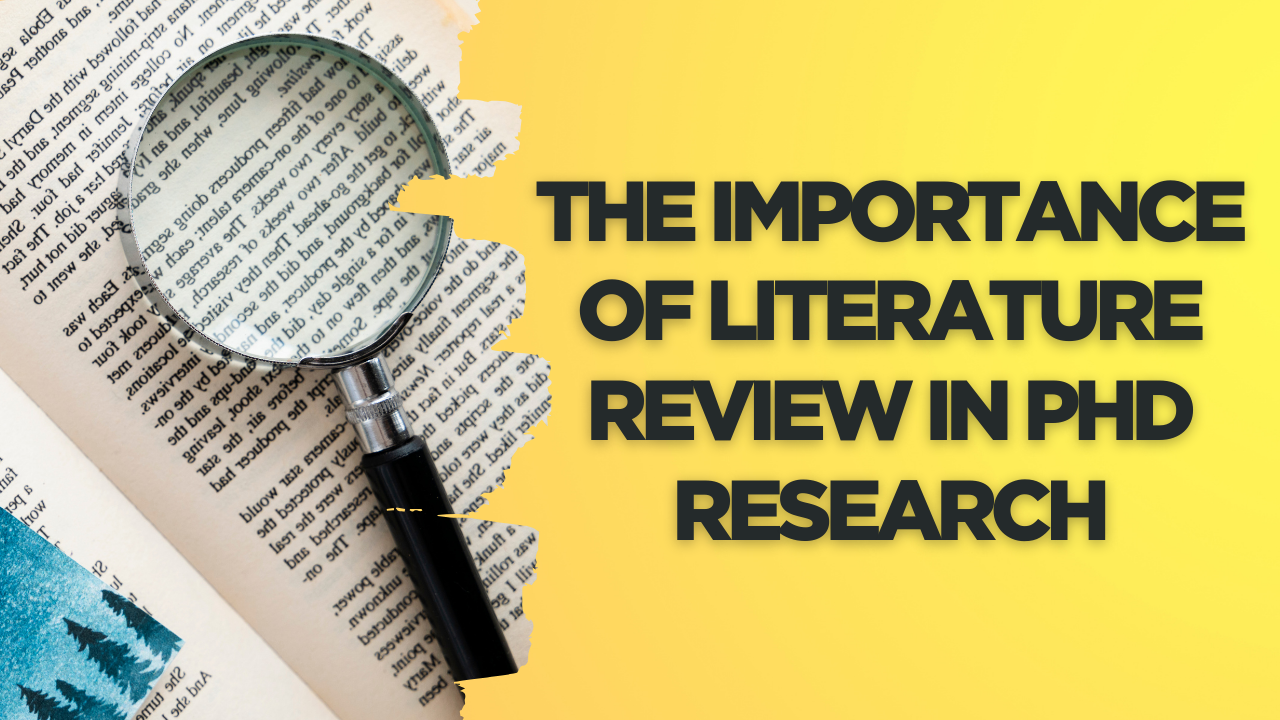15Feb
- Home
- The Importance of Literature Review in PhD Research
- PhD Research Updates
- The Importance of Literature Review in PhD Research

A Literature Review in PhD Research is a fundamental component of PhD research. It serves as the foundation upon which new research is built, providing insights into existing studies, identifying gaps, and justifying the need for new investigations. Conducting a comprehensive Literature Review in PhD Research ensures that researchers are well-informed about their subject, enabling them to position their work effectively within the academic landscape.

The literature review in PhD research plays several crucial roles:
A thorough literature review helps researchers identify gaps in existing studies. By understanding what has already been explored, scholars can pinpoint areas that require further investigation, ensuring their work contributes original insights to the field.
Reviewing existing literature prevents researchers from unknowingly duplicating previous studies. Instead, it helps them build upon established findings, leading to more meaningful advancements in their field.
A well-conducted literature review provides the theoretical foundation for PhD research. It helps scholars understand key concepts, theories, and methodologies relevant to their study, guiding them in developing their own framework.
By analyzing previous studies, researchers can gain insights into effective research methods, identifying best practices and potential pitfalls. This ensures their methodology is well-grounded and scientifically sound.
A literature review strengthens a researcher’s arguments by providing evidence from existing studies. It helps justify the significance of the research and demonstrates the scholar’s understanding of the subject matter.
A comprehensive literature review adds credibility to PhD research. It shows that the researcher has a deep understanding of the field, reinforcing the validity of their findings and conclusions.
To maximize the impact of a literature review, PhD scholars should follow a structured approach:
Clearly outline the objectives of the literature review and the key themes relevant to the research topic.
Utilize academic databases such as Scopus, Web of Science, Google Scholar, and IEEE Xplore to find high-quality journal articles, conference papers, and books.
Critically assess the credibility, relevance, and contributions of each source. Identify patterns, contradictions, and gaps in the literature.
Structure the review thematically or chronologically to present a coherent analysis of existing research.
Highlight key insights, compare different viewpoints, and discuss how they relate to the research problem.
Ensure proper referencing using citation styles such as APA, MLA, or IEEE to maintain academic integrity.
A Literature Review in PhD Research is a vital component of PhD research, providing the necessary background, context, and justification for new studies. By identifying research gaps, establishing a theoretical foundation, and enhancing research credibility, a well-executed Literature Review in PhD Research lays the groundwork for a successful PhD journey. Scholars must approach this process systematically to ensure their research is well-informed, relevant, and impactful.
Kenfra Research understands the challenges faced by PhD scholars and offers tailored solutions to support your academic goals. From topic selection to advanced plagiarism checking.

Choosing the Best PhD Research Paper Topic is a crucial step in your academic journey. The right topic can... read more

A well-defined Problem Statement is the foundation of a successful PhD research study. The Problem Statements provides clarity, focus,... read more
Transitioning from mathematics to physics for a high-paying PhD program can be a rewarding academic and career move. Here are... read more

Earning a PhD is a monumental achievement, but it’s no secret that the journey to Finish Your PhD Faster... read more

If you’re planning to implement a research paper in MATLAB, it’s crucial to have a clear and structured approach. MATLAB... read more
Image Processing is a notable research domain that fosters various ideas and shows it as a journal paper composing. Here... read more
WhatsApp us
Leave a Reply